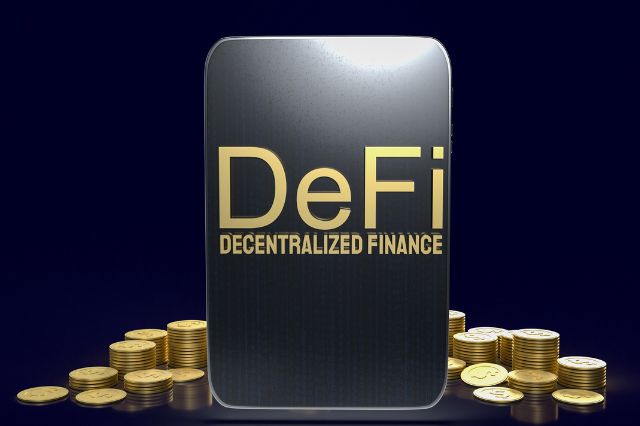Exploring the transformative role of Decentralized Finance (DeFi) in reshaping venture capital and funding landscapes.
This article delves into how DeFi’s innovative mechanisms are redefining traditional financial paradigms, offering new opportunities and challenges in the investment world.
Start your trading journey by investing in a reliable trading platform such as profitedge.org.
Comparison of DeFi and traditional venture capital models
The comparison between Decentralized Finance (DeFi) and traditional venture capital models marks a significant shift in the landscape of funding and investment. Traditional venture capital operates on a centralized model, where venture capitalists — typically well-funded firms or individuals — provide capital to startups or companies with high growth potential in exchange for equity, or a stake in the company.
This process is often lengthy and involves rigorous vetting, with a focus on potential market success and profitability.
In contrast, DeFi presents a decentralized approach to funding, leveraging blockchain technology to democratize access to capital. Here, investments are not controlled by a single entity but are distributed across a network of individuals, often utilizing cryptocurrencies and smart contracts.
This allows for a broader range of investors to participate in funding ventures, not just those with significant capital or industry connections.
A key distinction lies in the accessibility and inclusivity of DeFi. While traditional venture capital is often criticized for being exclusive and biased towards certain regions or industries, DeFi opens up investment opportunities to a global pool of investors, irrespective of their geographical location or financial status.
This inclusivity fosters a more diverse range of projects and ideas, expanding beyond the conventional scope of venture capitalists.
Another notable difference is the speed and efficiency of funding through DeFi. Traditional venture capital involves a series of negotiations and due diligence, which can take months to finalize. DeFi, on the other hand, utilizes smart contracts on blockchain platforms, significantly reducing the time and complexity of transactions.
These contracts execute automatically based on pre-set conditions, ensuring a faster and more transparent investment process.
Moreover, the risk and reward dynamics differ considerably between the two models. Traditional venture capital investments are high risk but offer potentially high returns, with venture capitalists often involved in the strategic direction of the companies they fund.
In DeFi, while the risk of investment can be high due to market volatility and regulatory uncertainties, it offers a more hands-off approach, with investors typically not involved in the day-to-day operations of the projects they fund.
How DeFi is changing the funding process for startups
Firstly, DeFi democratizes access to capital. Traditional funding avenues often have stringent requirements and are geographically and institutionally limited, favoring startups in well-established tech hubs or those with certain industry connections.
DeFi, through platforms built on blockchain, enables startups from any location to access funding. This global reach breaks down barriers to entry, allowing a diverse array of innovative ideas to secure funding, irrespective of their geographical or institutional affiliations.
Another significant change brought about by DeFi is the speed and efficiency of the funding process. Traditional methods, involving rounds of pitching, due diligence, and legal negotiations, can be time-consuming. DeFi, on the other hand, leverages smart contracts – self-executing contracts with the terms of the agreement directly written into code.
These contracts automate and streamline funding processes, significantly reducing the time from initial pitch to receipt of funds. This efficiency is vital for startups, where the speed of funding can often be critical to the success of the project.
DeFi also introduces novel fundraising mechanisms such as Initial Coin Offerings (ICOs), Liquidity Mining, and Yield Farming. These methods allow startups to raise capital by issuing their own tokens, which can represent a stake in the company or project, or be used in their emerging ecosystems.
This approach not only provides startups with the needed funds but also helps in building a community of stakeholders who are invested in the project’s success.
Furthermore, DeFi’s transparent and immutable ledger technology fosters a heightened level of trust among investors. In traditional settings, investors rely heavily on due diligence and often have to trust intermediaries for information on the startup.
With DeFi, all transactions are recorded on the blockchain, offering unparalleled transparency. This transparency ensures that investors have direct access to real-time information about where their money is going and how it’s being used, enhancing the accountability of startups.
Conclusion
DeFi’s impact on venture capital signifies a financial evolution, introducing novel funding avenues while posing unique challenges. As we navigate this emerging terrain, understanding DeFi’s role in shaping future investment strategies becomes crucial for investors and entrepreneurs alike.






